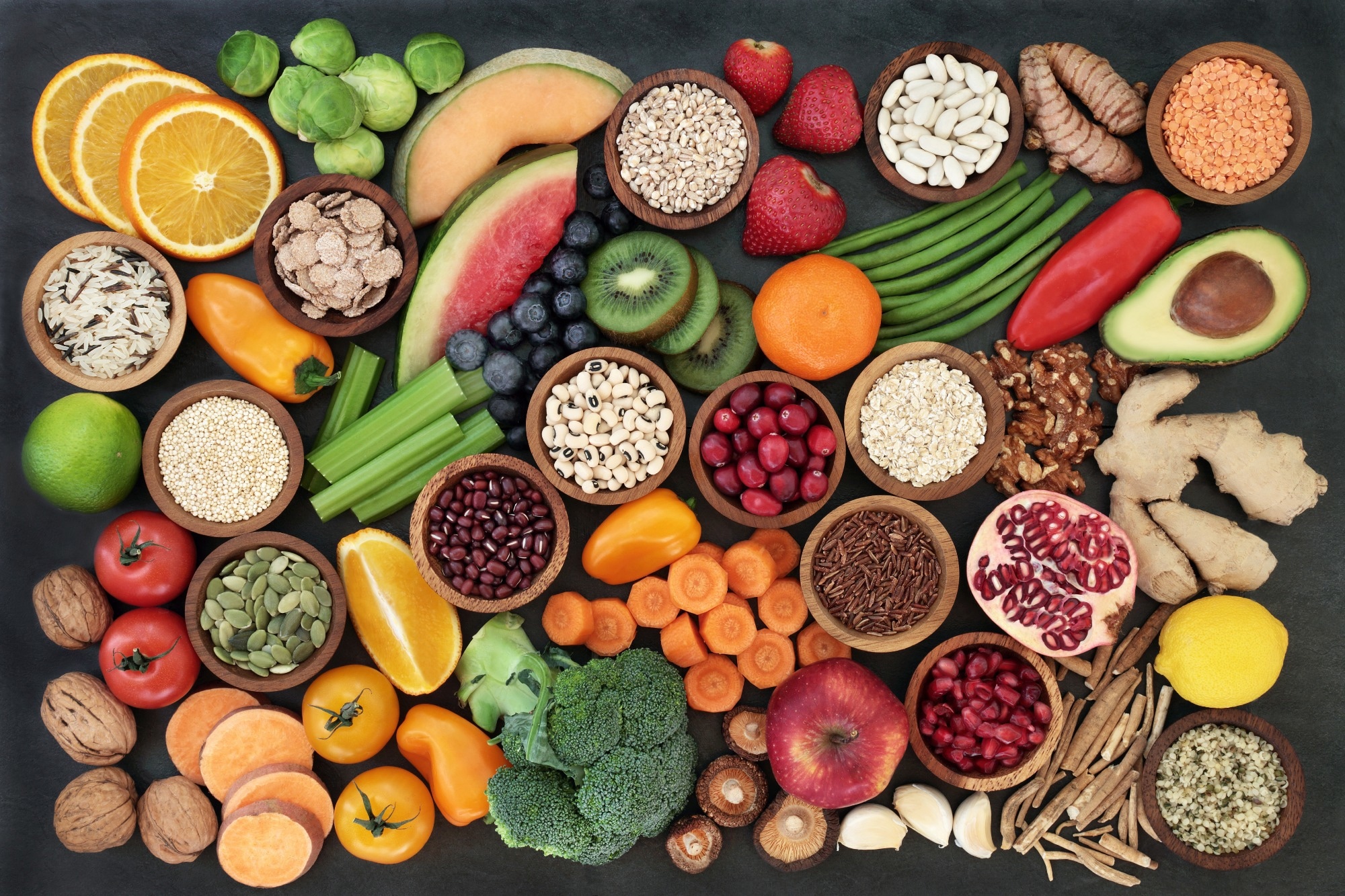Veganuary
Plant-based diets
Vegan diets
Veganism and health
References
Further Reading
A 30-day-long challenge, Veganuary, is an event in which people from across the globe give up meat and meat products in January every year to promote veganism. With around 10 million vegans in America, veganism has gained popularity over the past few years.
In the United States, the proportion of people considered "vegans" increased from 1% in 2012 to 3% in 2018. One in five people reported consuming less meat during the COVID-19 pandemic, and one in four British reported consuming fewer animal products.
 Image Credit: marilynbarbone/Shutterstock.com
Image Credit: marilynbarbone/Shutterstock.com
Veganuary
Veganuary uses social media marketing to raise awareness and entice individuals to try veganism. One of Veganuary's main goals ever since it began in 2014 has been to work with businesses to increase public awareness of, access to, and taste for plant-based cuisine.
It has inspired over 2.5 million people from across the globe to try veganism. To make the vegan diet seem more approachable and less radical, Veganuary proponents use words like "plant-based" and "flexitarian."
Breaking all prior records, Veganuary 2023 attracted more than 700,000 participants from 228 nations and territories. Following personal health and the environment as the top reasons for going vegan, nearly 40% cited compassion for animals as their main driving force.
Some also opted for Veganuary for a friend, partner, or family member, for a change or challenge, or curiosity, and for the world's health—25% of those who had not been vegan before Veganuary intended to remain vegan after their vow.
The majority of people (47%) saw some improvement in their general health, with the most frequent outcomes being more energy and better mood in nearly half of the participants and better skin and desired body weight change in more than 30%.
What is Veganuary's Impact? 🔎
Plant-based diets
Plant-based diets reduce pollution by consuming less land, water, and fuel. According to a 2018 study on the environmental effects of 40 meals produced by 40,000 farms in 119 countries, eating less or no animal-based food is essential for lowering our ecological footprint.
According to the World Health Organisation, the best diet for health and longevity is high in vegetables, fruits, legumes, nuts, and grains. The advantage increases with how much of a person's diet they make up.
Vegan diets
Vegan diets are typically higher in folic acid, magnesium, and dietary fiber. Iron, polyphenols, and vitamins C and E are also abundant in them. These diets usually have lower intakes of calories, cholesterol, saturated fat, fatty acids, vitamin D, B12, calcium, and zinc.
A vegan diet seems beneficial for increasing the intake of preventive nutrients and phytochemicals while reducing the intake of dietary elements linked to various chronic illnesses.
Vegetable and fruit consumption among vegans is significantly higher than in omnivores. Increased consumption of fruits and vegetables, which are high in fiber, folic acid, antioxidants, and phytochemicals, is linked to reduced blood cholesterol levels, a decreased risk of stroke and ischemic heart disease mortality, and a decreased incidence of stroke.
Additionally, whole grains, soy, and nuts—all of which have significant cardioprotective effects—are consumed at higher rates by vegans.
The NHS determined that if the UK population adopted a vegan diet, it would save an astounding £30,000,000,000 in terms of money and health. In addition, studies have shown older persons who followed a plant-based diet needed 58% fewer prescription drugs than meat eaters.
 Image Credit: Okrasiuk/Shutterstock.com
Image Credit: Okrasiuk/Shutterstock.com
Veganism and health
Compared to non-vegetarians and non-vegans, a meta-analysis revealed that vegans exhibit significantly lower levels of the most critical risk factors for chronic diseases, such as BMI, lipid variables, and fasting glucose.
The moderate-to-high risk of bias assessment in each included study, however, indicates that the cross-sectional studies' nature, which is extremely sensitive to biases, has a substantial impact on these findings.
Similarly, a vegan diet demonstrated a substantial link with a lower risk of overall cancer incidence while only appearing in a small number of trials.
According to a study, vegan African Americans had much lower blood lipid levels and BMI than Lacto-Ovo vegetarians. Similarly, vegetarians had lower plasma lipids among Latin Americans than omnivores, with vegans reporting the lowest levels.
In that study, vegans had plasma total and LDL cholesterol levels that were, respectively, 32% and 44% lower than omnivores. The much reduced mean BMI found in vegans may be a crucial protective factor for lowering blood lipids and heart disease risk because obesity is a key risk factor for CVD.
Recent research on postmenopausal Asian women found that long-term vegans had significantly lower spine or hip BMD. According to an intervention study, switching to a vegan diet improved people's moods, anxiety, and sadness.
More research on the effects of vegan diets on physical health and mental health is required. Significant implications of a vegan diet on different age groups and populations and its association with various diseases also need to be studied further.
References
- 78% OF VEGANUARY 2023 PARTICIPANTS PLAN SIGNIFICANT DIET CHANGE. (2023). [ONLINE] Veganuary. Available at: https://veganuary.com/veganuary-2023-participant-survey/
- Sanford M, Lorimer J. Veganuary and the vegan sausage (t)rolls: conflict and commercial engagement in online climate-diet discourse. Humanit Soc Sci Commun. 2022;9(1):455. doi: 10.1057/s41599-022-01464-2. Epub 2022 Dec 19. PMID: 36568509; PMCID: PMC9761638.
- Newby, P.K. (2019). So long, veganuary. New Scientist, 241(3215), 24–25. doi: 10.1016/S0262-4079(19)30197-6
- Dinu M, Abbate R, Gensini GF, Casini A, Sofi F. Vegetarian, vegan diets and multiple health outcomes: A systematic review with meta-analysis of observational studies. Crit Rev Food Sci Nutr. 2017 Nov 22;57(17):3640-3649. doi: 10.1080/10408398.2016.1138447. PMID: 26853923.
- Craig WJ. Health effects of vegan diets. Am J Clin Nutr. 2009 May;89(5):1627S-1633S. doi: 10.3945/ajcn.2009.26736N. Epub 2009 Mar 11. PMID: 19279075.
Further Reading
Last Updated: May 31, 2023